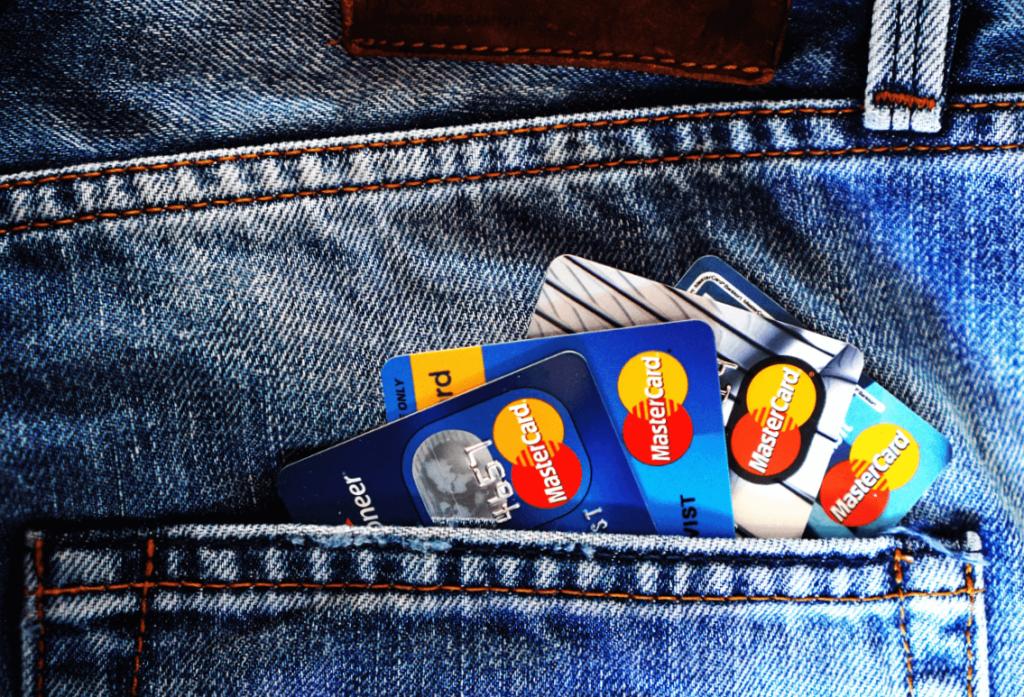You must be wondering what credit score is, why I should bother knowing about it. I get you.
If you are applying for a federal job or home loan or car loan, your credit score tells everything about you. If you don’t maintain a good credit score, most likely, you would be denied getting credit or access to federal jobs.
Let me tell you a true story. When I was working at Bank, I needed to apply personal loans all the time for my customers. All I had to do was key-in customers personal information in the system. The system would generate an outcome with an interest rate. This is the rate the customers would pay for their personal loan.
You would be surprised that few customers would get 13% and some would get 22%. It all dependent on the credit score.
Credit score is the number between 300-850 which depicts the creditworthiness of a customer. The higher the score, the better face value the borrower can create in front of the potential lenders.
A credit score is based on the history of credit, like, the number of open accounts, overall debt amounts, repayment history, and other variables. To determine the loan repayment ability of a person in a timely manner, lenders tend to use credit scores.
The Fair Isaac Corporation (FICO), created the credit score model which is used by financial institutions to determine credit scores. Among other credit scoring systems, the FICO score is by far the most commonly used one.
This score is used by the majority of the banks and other lenders. The scores rely on consumer credit data taken from the three national credit bureaus – Experian, Equifax, and TransUnion.
If you maintain an excellent credit score of 800 and above, you will always save money in the interest payment. In the long run, you would potentially save tens of thousands of dollars.
In this post, I discussed everything you need to know about credit score. I discussed nine ninja techniques to increase your credit score from this month.
Let’s jump in.
What Credit Score is Good?
For instance, individuals with credit scores below 640 are categorized as ‘subprime borrowers.’ These borrowers have lower credit scores. Mostly, they are likely to have multiple negative factors in their credit reports.
To compensate the lenders for bearing more risk, lending institutions often charge a higher rate of interest on subprime mortgages. And these borrowers with a poor credit score, might need a shorter repayment period or a co-signer.
Put another way, a credit score of 700 or above is usually considered good and can result in a lower interest rate for a borrower. So, the borrower will have to pay less interest payments over the life of the loan.
Scores higher than 800 are regarded as outstanding. According to Shift, 21.8% Americans have a credit score higher than 800. Although each lender determines its own credit scoring ranges, the average FICO score range is also used—
| Range | |
| Excellent | 800 to 850 |
| Very Good | 740 to 799 |
| Good | 670 to 739 |
| Fair | 580 to 669 |
| Poor | 300 to 579 |
Precisely, the mathematical evaluation of your creditworthiness is your credit score. It directly influences how much or how little you will have to pay for any credit line you take out. So, maintaining and getting a good credit score is necessary for your financial improvement.
How Credit Score is determined?
As per the news published in CNBC, 4 out of 10 Americans have no idea how to calculate their credit score. Without knowing your current credit score you won’t know is it necessary to increase it or not. So, let’s learn to calculate this.
Credit score is a portrait of your credit history that is made up of several factors which I’ll be discussing in a moment. This number is placed on a scale that helps prospective lenders evaluate how likely you are to pay your debts. This in turn determines what kinds of loans you can get.
Though most of the agencies keep their exact formula secret, you can at least know the weight of each category in FICO score. Here are the precise details of 5 categories–
- Payment History:
35% of your score is compensated through your payment history. This illustrates if you make timely payments, how much you skip payments, how many days after your due date do you pay your bills, and how recent payments have been skipped.
The greater your percentage of on-time payments, the greater your ranking would be. You negatively affect your score any time you miss a payment.
- Amounts Owed or Credit Utilization:
How much you owe makes up 30% of your score on credit cards and loans. Comparing to how much credit you have available, this is dependent on the overall amount you owe, how many and what type of accounts you have, and the amount of money owed.
Paying on time, high balances and maxed-out credit cards can lower your credit score, however smaller balances will increase it. New loans with little payment history may temporarily lower your score, but loans closer to being paid off will boost it because they all have a successful payment history.
- Length of Credit Score History:
The length of your credit history accounts for 15% of your score. When your history of making on-time payments gets longer, the higher your score becomes. It might seem prudent to avoid applying for credit and carrying debt, but if creditors have no credit background to check, this may also negatively affect your score.
- Types of Account You Have:
10% of the ranking is made up of the types of accounts you have. Your score can be strengthened by providing a mix of accounts, including instalment loans, home loans, and retail and credit cards.
- Recent Credit Activity:
The final 10 percent is made up of recent credit operations. If you have recently opened a lot of accounts or applied to open new accounts, it might indicate possible financial trouble and may reduce your score.
However, the score will go up over time if you have had the same loans or credit cards for a long time and paid them promptly, even after payment issues.

Nine Steps to Increase Your credit Score:
1. Treat Your Bills seriously:
When lenders evaluate your credit report and submit a credit score for you, they are quite interested in how consistently you pay your bills. This is because the past payment performance is usually considered as a good forecaster of future performance.
You might want to pay all bills on time—not only credit card bills or any kinds of loans you might have. It is also a smart option to use the services and tools available to you, such as automated payments or calendar reminders, to help ensuring that you pay on time every month.
When you’re behind any payments, get them up to date as soon as possible. Because late or missing payments seems to be a negative information on your credit report. You might have a positive impact on your credit score by paying all your bills on time as consented each month.
Remember, both paying ahead of schedule or paying less than you originally promised to pay can negatively impact credit scores.
2. Get Credit for Making Payments (Utility and Cell Phone):
If you’ve made your utility Cell Phone bill payments on schedule, it’s an opportunity for you to raise your credit score using these payments.
The people who don’t have much of a credit history, might have a history of paying their rent on time. But that information isn’t showed up on their credit reports. And it isn’t possible for you to report rent payments by yourself. Rent-reporting services are the ones who can get your credit reports to reflect your rent payments. For this your landlord has to bear a yearly cost of $100.
Rental Kharma and LevelCredit are such rent-reporting services that take a bill you are already paying and put it on your credit report. This data helps in building a positive history of on-time payments. Not every credit score takes these payments into account, but some do. And that might be enough for you to get a loan or credit card.
3. Be Cautious to New Credit Accounts opening:
Do not open several accounts just to have a better credit mix. By opening multiple credit accounts, your credit score won’t be improved. Because multiple application from an individual for card in a short period of time might make you look like a riskier borrower.
Applications can affect your score in a different way. The subtraction of points depends on your current credit score and payment history. If you have both a high credit score and a long history of timely payments, it’s likely not to lose as many points as someone with a lower score and shorter track record.
The points lost due to credit applications are likely to return within almost six months. So, if you are planning to apply for a loan within a short time, before getting the loan’s final approval it’s better not to apply for any other credit for at least six months.
4. Pay off Debt and Keep Balances Low:
In calculating credit score, the credit utilization ratio is necessary. This ratio is determined at any given time by adding all your credit card balances and dividing the number by your total credit cap.
For instance, if you normally charge around $2,000 per month and your total credit limit is $10,000 for all your cards, your utilization ratio is 20%. Look at all your credit card receipts over the last 12 months to find out the total credit utilization ratio.
Attach the statement balances from all your cards for each month and divide them by 12. That’s how much credit, on average, you use every month.
Mostly, lenders prefer the utilization ratio of 30% or less than that. A low credit utilization ratio informs lenders that your credit cards have not been maximized and that you probably know how to handle credit well. You can affect your credit utilization ratio positively by
- Paying off debt and keeping credit cards balances low.
- Becoming an authorized consumer on an account of another person (as long as they use credit responsibly).
5. Lock up your unused Credit Cards:
Closing an account might improve your credit utilization ratio but keeping the cards open has its benefits too.
In case you’re not struggling with your credit card debt, don’t’ just close those. Instead, you can put them in a secure drawer. It is a good strategy as long as they don’t cost you money in annual fees. Closing your credit account causes that account from aging which affects your average account age. Your credit scores can be lower if you owe the same amount but have lesser open accounts.
6. Consider increasing Your Credit Limit:
The decrease in your credit ratio, helps increase your credit score. When you have a credit of $500 and your credit limit is $550, your utilization ratio is 91%. On the other hand, when you have a credit limit of $800 but have the same amount of debt, your ration becomes 62.5%. And the lower the ratio is, the higher your credit score goes.
A higher credit limit also leaves the door open for making larger purchases. It can be your friend in need in times of emergency situations.
7. Dispute Inaccuracies on Your Credit Reports:
Incorrect information could drag down your scores on your credit reports. Make sure that the accounts shown in your reports are accurate. You can get a copy of your credit report every year from the three credit bureaus by visiting www.annualcreditreport.com.
These credit bureaus are legally obligated to investigate if you dispute any accuracy on your credit report. If you see mistakes, challenge the data and instantly get it corrected. Before the inaccuracies can do harm, checking your credit on a regular basis can help you spot them easily.
8. Become an Authorized User:
Adding someone else on your credit card as an authorized user, helps increase their credit score. An authorized user gets to use credit but can not be held legally responsible for paying debt.
Becoming an approved consumer on the credit card account of someone else is a technique for rapidly enhancing credit. It works better if there is a long record of on-time payments on the primary user’s card and the registered user does not have recent blemishes on their credit history.
9. Improve Your Credit Mix:
A robust credit mix can surely boost your credit score a little. Opening a credit card is a convenient way to use revolving credit to pay your bill every month on time.
For your credit mix, make a list of credit accounts you have, and which loans might be necessary for you at this time. Consider opening a personal loan or other forms of secured loan if you don’t have an instalment loan and only have credit cards. But keep in mind that, opening too many credit accounts just to get a better credit mix isn’t a wise thing to do.
Rebuilding a Credit Score and How Long Does It Take?
How much time it’ll take to rebuild a credit score depends on how many mistakes you’ve made and what’s your goal for achieving this credit score. For example, you are willing to take a car loan when you reach your targeted credit score.
It might not be easier to fix your credit score right away. Because the negative impact of late and missed payments, bankruptcy etc. can have an affect on your credit score for more than 7 years.
Paying off your debts faster, building a habit of making timely payments, keeping a low credit balance can help you rebuild your lost credit score. It might take a little time, but trust me it’ll be worth working hard.
Final Thoughts
As you can see that your credit score is totally manageable as long as you take all the technicalities seriously.
Overnight, you cannot earn a perfect 850 credit score. But every move in the right direction may bring you closer to your target score. You will be able to take advantages when you switch from poor credit to fair credit to good credit.
Developing strong long-term credit habits is the best way of obtaining and sustaining an outstanding ranking. For that, pay your balances on time, maintain a low usage rate, and apply for credit if that’s necessary. Your score will increase over time if you follow these rules of thumb.
I really wish a good credit score for you.




Good info. Lucky me I reach on your website by accident, I bookmarked it. Neile Evelin Samella
Excellent info it is actually. I have been awaiting for this tips. Josy Hagen Shurwood
Wow! Thank you! I continuously needed to write on my blog something like that. Can I include a part of your post to my site? Aggy Byrom Woodward